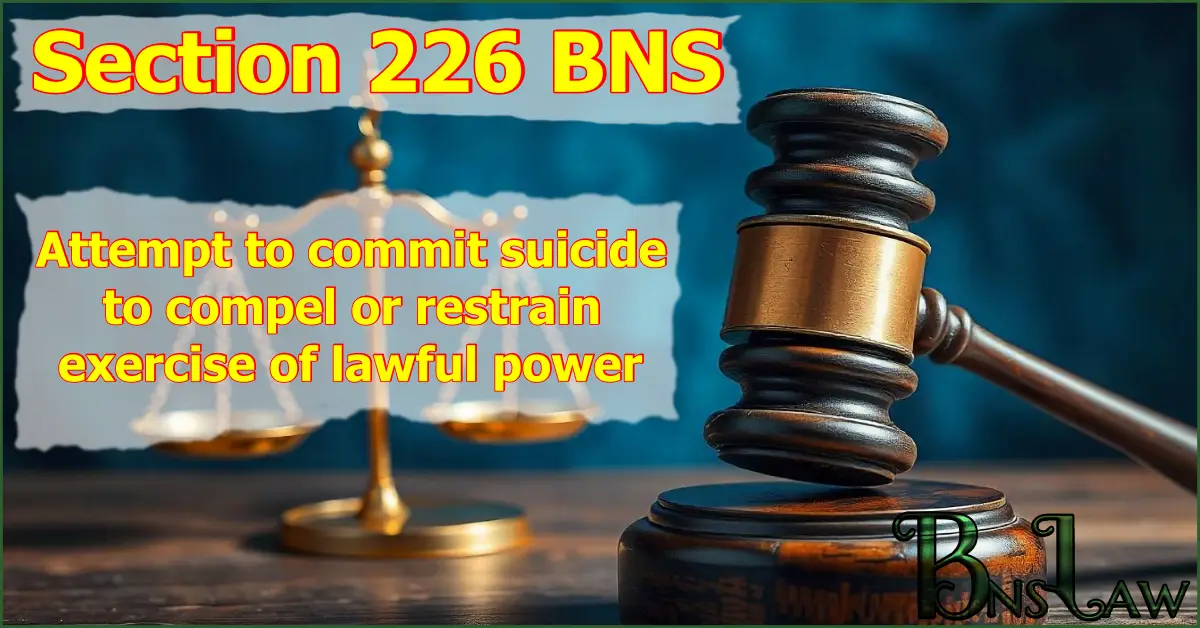Section 226 BNS | BNS 226
Whoever attempts to commit suicide with the intent to compel or restrain any public servant from discharging his official duty shall be punished with simple imprisonment for a term which may extend to one year, or with fine, or with both, or with community service.
READ OTHER SECTIONS OF CHAPTER XIII — OF CONTEMPTS OF THE LAWFUL AUTHORITY OF PUBLIC SERVANTS
FAQs of BNS Section 226
-
226 BNS punishment and fine
Punishment and fine under Section 226 of the BNS: Imprisonment for 1 year, or fine, or both, or community service.
-
226 BNS cognizable or not
The offence under Section 226 of the BNS is non-cognizable.
-
226 BNS bailable or not
The offence under Section 226 of the BNS is bailable.
-
226 BNS trial court
Offence specified in Section 226 of the BNS is triable by any Magistrate.
Important Points
- Cognizable Offences: These are offences where a police officer can arrest a person without a warrant.
- Non-Cognizable Offences: These are offences where a police officer cannot arrest a person without a warrant.
- Bailable Offences: These are offences where the accused can get bail from the police station itself. All bailable offences are listed in the First Schedule of the Bharatiya Nagarik Suraksha Sanhita (BNSS).
- Non-Bailable Offences: Offences in which bail is not granted directly from the police station but after hearing the case in the court, the judge decides when bail will be granted. All non-bailable offences are listed in the first schedule of the Bharatiya Nagarik Suraksha Sanhita (BNSS).
- In the above FAQ, “trial court” means the court that has jurisdiction to try the offence.
- In the above FAQ, the expression “Magistrate of the first class” and “Any Magistrate” does not include Executive Magistrates.
Read other Sections of the BNS
Reference Link: New Criminal Laws (BNS), Ministry of Home Affairs







